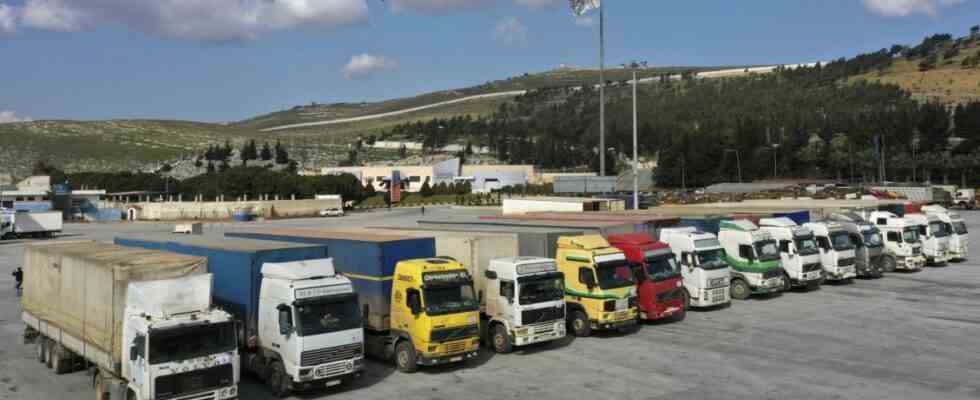The astonishing thing happened very late on Monday: Syria’s ruler Bashar al-Assad gave in. For days, United Nations (UN) officials, including UN Secretary-General António Guterres, have been asking for more crossings to be opened on the border between Turkey and northwestern Syria so that more aid convoys can enter the country via this route.
The problem: North-west Syria has not only been badly hit by the recent earthquakes, it is also a battleground in the Syrian civil war and is largely controlled by rebels. Nevertheless, Assad now agreed. It is now easier for UN transports to reach those in need from Turkey. UN Secretary-General Guterres welcomed the move immediately and officially.
Since 2014, the UN has been supporting the people of north-west Syria because of the civil war via the route from Turkey. So far, only the Bab al-Hawa border crossing has been available for transport. The reason that the transports all went through this one crossing was that China and Russia refused to pass a resolution in the UN Security Council that would allow the use of further crossings.
So far, Assad’s government has seen deliveries from Turkey as a violation of the national border
Assad’s government has now announced that aid supplies can now enter the country via two other crossings on the border with Turkey: Bab al-Salameh (Bab al-Salam) and Al-Rai (Al Raée). This regulation initially applies for three months. Bassam al-Sabbagh, Syrian ambassador to the United Nations in New York, said all regions of Syria needed help, including those in the northwest that were under the control of “terrorist groups”.
It was only at the beginning of January of this year that the 15 members of the Security Council agreed to allow the only crossing in Bab al-Hawa to be used for another six months until next summer. The previous resolution had expired. The respective resolutions no longer apply because Russia insists on a strictly limited validity.
The aid deliveries from Turkey directly to the rebel area are only “temporary”, according to the Russian side. In the medium term, according to Moscow, they are to be replaced by supplies coming from areas controlled by Syrian government troops.
Residents of the city of Harem in Idlib province take refuge in a tent camp after the earthquake destroyed their homes.
(Photo: Ghaith Alsayed/AP)
Assad’s government has so far viewed the deliveries from Turkey as a violation of the country’s borders and thus of state sovereignty. UN Ambassador Sabbagh said in January that Western countries were politicizing humanitarian aid in the Security Council.
Russia supports Assad in civil war. Nevertheless, in January Moscow surprisingly voted to extend deliveries from Turkey. UN ambassador Wassili Nebensya said at the time that he found it difficult to give his approval because north-western Syria was an “enclave flooded by terrorists”. However, Moscow’s approval in this individual case, he said, does not change the fact that deliveries from Turkey are still viewed as temporary.
“At the moment every single hour counts”
Some members of the Security Council recently took the view that a fundamentally new situation had arisen as a result of the earthquake. The American ambassador to the UN, Linda Thomas-Greenfield, told the Reuters news agency this weekend that the Security Council should pass a new resolution as soon as possible that would allow at least one more border crossing to be opened. “Right now, every single hour counts,” she said.
British diplomat Martin Griffiths, who is responsible for coordinating emergency aid at the UN, is currently in the Turkish-Syrian border area. He has now apparently succeeded in persuading Assad to open more border crossings from Turkey. According to several media reports, Griffiths and Assad met in Damascus on Monday.
The situation at the UN headquarters in New York had previously seemed confusing. In order to pass a resolution, a text would first have to be available. According to UN diplomats, there was not even a draft as of Monday. That would have meant that plenty of time would have gone by, since draft resolutions in New York are often debated to the last comma.
According to the UN, more than 800,000 people in the Syrian-Turkish border region need hot food and a lot of other help. The United Nations also announced that an aid convoy that started in the Syrian government-controlled area at the weekend was having problems reaching the crisis region in the north-west. This is because paramilitary troops prevented passage.
The US government was cautiously positive in a first statement on Monday. “We really hope Assad is serious,” said State Department spokesman Ned Price, “that would be good for the Syrian people.”

